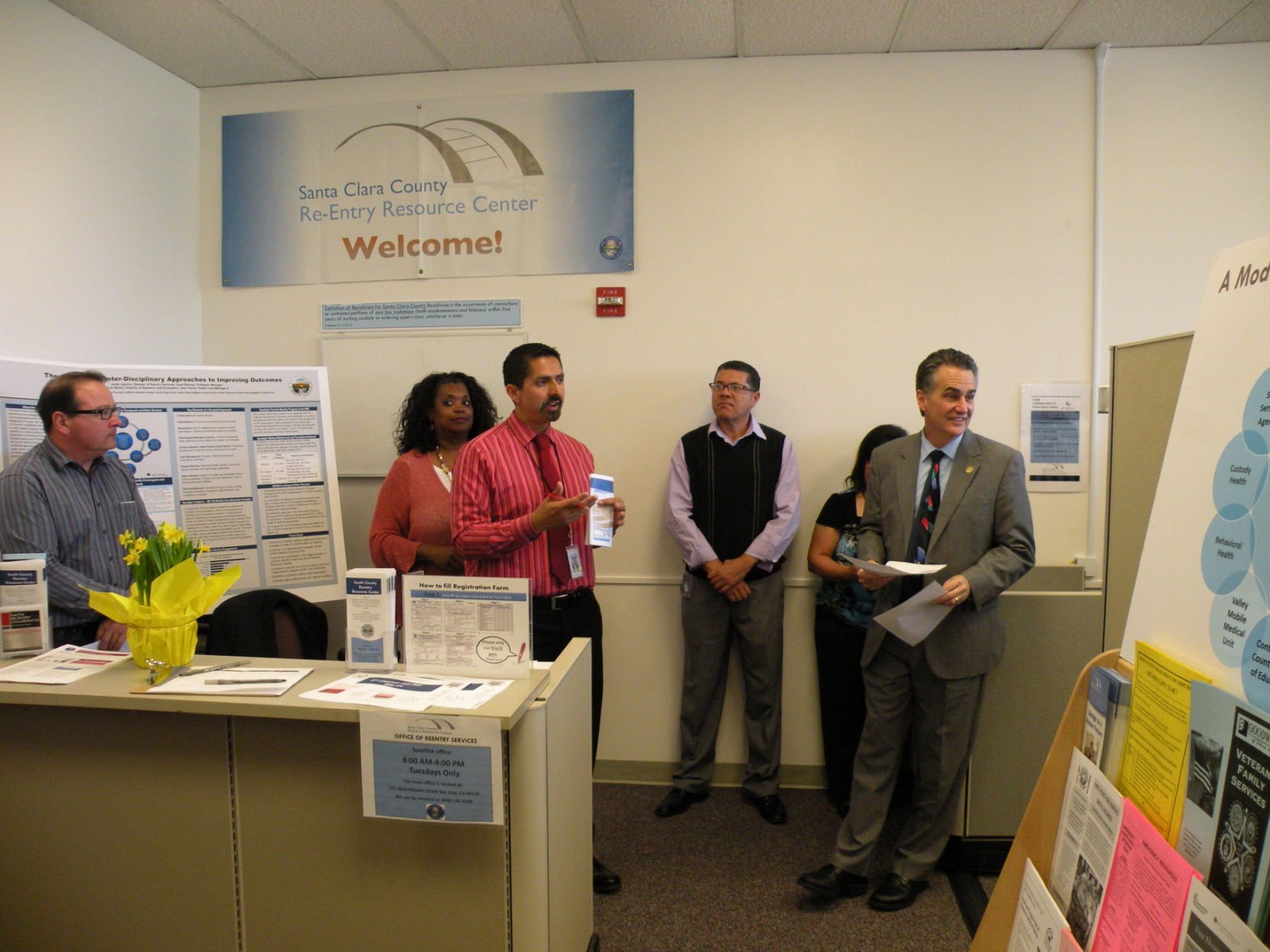Building a community in the classroom is perhaps the most
important aspect of teaching, according to Morgan Hill’s El Toro
Elementary fourth-grade teacher Diana Hawley. The environment is
vital to a student’s success, she believes.
Building a community in the classroom is perhaps the most important aspect of teaching, according to Morgan Hill’s El Toro Elementary fourth-grade teacher Diana Hawley. The environment is vital to a student’s success, she believes.
“To create an atmosphere, a community, where students feel safe to take risks in learning and to be enthusiastic about learning, that’s so important,” she said.
Part of creating that community is to allow students the opportunity to compliment their peers. Hawley, who is in her ninth year at El Toro, said she holds a “community circle” meeting in her classroom on a regular basis. A student is selected to sit in the “hot seat,” as other students praise the student and his or her effort.
“You might think students at that age would be embarrassed with all the attention and praise,” Hawley said, “but instead they really soak it up. … Sometimes, we even have students from other classes coming in during community circle to say, for example, ‘I’m sorry I treated you that way on the playground,’ and the other students just burst into applause. They truly applaud the achievements of their classmates.”
A big part of community circle, Hawley said, is Josephine, her dummy.
“I’m a ventriloquist, and Josephine is really the leader of the community circle,” she said. “The children tell Josephine things they may not tell me.”
On one occasion, she said, she put Josephine in the “hot seat,” and was amazed and amused at what the students had to say about her.
“One of the students told her, ‘I like how you don’t talk when the teacher is talking,’ ” she said with a laugh.
The connection Hawley is able to form with students is valuable in her current position as part-time fourth-grade teacher, part-time literacy coach and GATE (gifted and talented education) coordinator.
Superintendent Carolyn McKennan said having experience outside the regular classroom often enhances a teacher’s skills.
“One of the things that I admire about Diana is her efforts as a resource room teacher and her ability to bring that experience to her role as a classroom teacher,” McKennan said.
Hawley first came to El Toro as a special ed teacher. She then moved into a third-fourth-grade combo before teaching fourth grade. She is currently in her third year as El Toro’s literacy coach.
“This is such an exciting thing for me,” she said of the literacy program.
As the school’s literacy coach, Hawley helps other teachers establish what are called “best practices” for teaching writing. She visits other classrooms, conducting writers workshops and conferencing with students about their writing. Most of the students at El Toro know her either as Mrs. Hawley or “the writing lady.”
El Toro Principal Kathleen Masner said staff and students alike benefit from Hawley’s efforts.
“Mrs. Hawley is an exemplary teacher who has been an inspiration to students and staff at El Toro,” she said. “Her students sing her praises in all areas of learning. Our staff as well has benefited from her experiences as she has motivated some teachers to publish their work as well.”
Working with the staff at El Toro has been a wonderful experience, Hawley said. Just as she shares what she learns from training sessions and from the district’s other literacy coaches she gains valuable feedback from staff members.
McKennan described her as an example of what the district says is its goal to create: life-long learners.
“We tell our parents that we’re a community of learners, that we want our children to develop that desire for knowledge, and Diana walks the talk,” she said. “She has pushed herself and has motivated others to keep stretching the boundaries. She motivates our teachers to be published writers, to do action research, to share their challenges as well as their ‘a-ha’ moments.”
Masner said the literacy coaching has had a very positive effect on the school.
“It is exciting to watch her coach and see young writers develop their skills and belief in themselves as writers,” she said.
It is this ability to touch more children’s lives that appeals to Hawley in her work as a literacy coach.
“While I enjoy classroom teaching, I also feel that it is important to me to share what I have learned with other teachers, so they can pass it on to their students,” she said. “I guess you could say my capacity is limited if I’m just in one classroom.”
McKennan said this is an aspect of the literacy coach and math coach programs that make them so valuable.
“The impact you see from one person’s efforts, the impact is greater,” she said. “If I am only in the classroom, I can reach 20 or 30 children. But if I can touch 15 teachers who touch 20 or 30 children, that is tremendous.”














